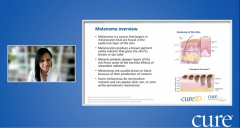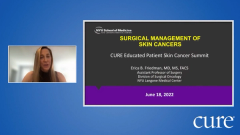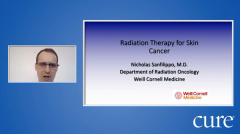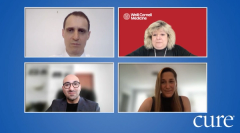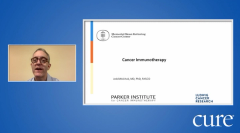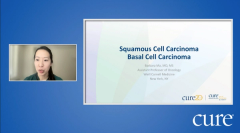
Educated Patient® Skin Cancer Summit Demystifying Clinical Trials Presentation: June 18, 2022
Watch Dr. Anna C. Pavlick, from Weill Cornell Medicine, discuss clinical trials during the CURE Educated Patient Skin Cancer Summit.
Episodes in this series

Patients with cancer often miss out on the benefits of clinical research either due to a dearth of communication from doctors or a lack of comprehension of their complex nature, according to a speaker during the CURE® Educated Patient® Skin Cancer Summit.
According to Dr. Anna C. Pavlick, the director of melanoma and cutaneous oncology at Weill Cornell Medicine in New York City, this is a problem because clinical trials may give the scientific community an opportunity to provide patients with better outcomes — both in the short- and long-term. .
“Clinical trials may help you, but you also may be helping future patients, especially if the research turns out to be positive,” she said.
What is a Clinical Trial?
A clinical trial is when patients work with researchers to test the effectiveness of specific medications on treating specific diseases, such as cancer. Pavlick further described clinical trials as a partnership that provides investigators, like herself, the opportunity to work with human beings, for the greater good of patients
What are the Types of Clinical Trials?
Pavlick noted that clinical trials can be retrospective, which is when investigators look back at previously completed studies and analyze patient outcomes to make decisions on how to move forward with existing or investigational drugs. There are also prospective trials where researchers follow patients in real time, either by giving an intervention or simply observing factors in their life that might affect their cancer diagnosis.
Prospective clinical trials can also be divided into interventional therapeutic trials and interventional nontherapeutic trials. Interventional therapeutic trials involve giving a patient an actual treatment that would treat the tumor, like medication, while interventional nontherapeutic trials involve giving patients treatments that do not directly treat the tumor, like exercise programs.
Different Phases of Clinical Trials
Interventional trials occur in three different phases. Early-phase trials, also known as phase 1, are designed to find out how much of the medication being tested should be administered to patients in later phases of the trial. Researchers start by administering a very small dosage to patients and then slowly increasing it, carefully monitoring the impact the medicine is having on the cancer as well as any potential side effects.
Once researchers learn the proper dosage and potential side effects of the medication, they test that specific dosage on more patients in a phase 2 trial. The purpose, here, according to Pavlick, is to observe how effective the drug is at treating the cancer.
If the results of the phase 2 study show that the drug effectively treats the cancer, a phase 3 trial is initiated. Pavlick explained that in phase 3 studies, patients are divided into two groups. One group, known as the control, receives the standard of care, which is the drug that has previously been proven to effectively treat the cancer.
The other group, known as the experimental group, receives the investigational drug. The results are then compared to each other to see if the medication being studied is doing a better job at treating the disease than the current standard of care.
What to Keep in Mind Before Joining a Clinical Trial?
Pavlick highly recommended that patients consider a multitude of questions with their doctor and loved ones before signing up for a clinical trial. For instance, they should ask if the medication being tested is being used by itself or in conjunction with another treatment? Another important question to ask is how long will before the drug gets approved by the Food and Drug Administration after the trial? Is it worth it to participate in the trial if the patient must wait years to be able to receive the drug again?
Patients should also ask about the time commitment of a trial, as well as if they will be reimbursed for any travel needed for the trial.
Why Don't More Patients Participate in Clinical Trials?
The biggest reason patients don’t participate in clinical trials, according to Pavlick, is lack of knowledge. In fact, 60% of patients who didn’t participate in clinical trials stated that they weren’t told it was an option.
Doctors don’t have enough time to discuss clinical trials with patients, she said. Most private practice doctors are seeing, “50 or 60 patients a day (and are worried) they may lose a patient if they talk about research (and) sometimes doctors just think that standard therapy is the best therapy that’s out there.”
However, she said she strongly disagrees with this notion that the standard therapy is the best available therapy for patients.
Pavlick concluded by stressing the need for more participation in clinical trials.
“Clinical research absolutely changes lives,” she stated after thanking patients who have made advances in research possible by participating in clinical trials throughout the years.
For more news on cancer updates, research and education, don’t forget to


